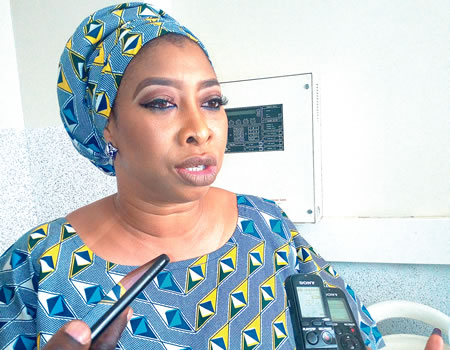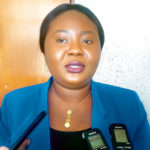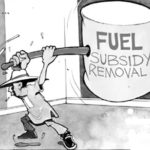Then as a new entrant into the Nigerian politics, how were you able to secure victory at the polls, winning elections six times?
I won at three primaries and three general elections. I will say that elections at the time were transition elections-the two rounds of the governorship elections were ending and so people wanted a difference and I think that is the same thing that the Peoples Democratic Party (PDP) fell into, transition elections. But it was very hard work; it took me a lot of hardwork.
Secondary school closed after students held wedding ceremonies among selves
With the low participation of Nigerian women in politics, what hope do you see for women in the 2019 elections?
This is very tragic. I actually don’t see any hope and the environment is fraught with so much violence. Now, if we don’t do anything about the violence, from Delta, Benue, to most of the constituencies where they recently had primary elections, you all saw the amount of guns, it was a free for all, with people shooting like it was the norm. In an environment of violence, women don’t thrive. Unfortunately, when you see the number of women that came out in the process of the party primaries, you will find that this is the lowest in the history of Nigeria political space. Now, the question becomes that after 18 years and four rounds of elections, the assumption is that our political space would be strengthened, deepened and the institutions and systems that guide politics and the conduct of elections would be stronger. But unfortunately, what we find is that those structures and institutions are getting weaker.
And again, that takes us back to the Electoral Act which, for me is very important because the job of the National Assembly is that, through its oversight, we would look at law of appropriation and policies and the things that happen are the things that would normally drive and determine the amendments brought to any law. Now for us, after the 2015 elections, there were so many lacunas; there were certain things that had mitigated against the smooth running of those elections and, as politicians, we decided that our only instrument was the amendment of the Electoral Act. By that amendment, certain, things were brought up bothering on violence. We found out that a lot of people actually proposed commissions against violence in elections; a lot of people proposed all kinds of amendments. We found out that what had happened, and that is the history of the sequence in elections, is the change in the sequence of elections. We found out that, because we have a largely illiterate population, the people know what they want, but they are probably not literate and so they can’t understand the difference between when you lump a candidate, with the consequences that you had things like it was PDP all the way, while the candidates of the All Progressives Congress (APC) got the sack. So, you find out that the people were not voting for politicians because they were lumped together and they didn’t have a choice. The women in my constituency would, for instance, ask, who should we vote for in the presidential election?
Now we found out that we were running proxy elections, meaning if we wanted to elect the president and it would, for example, be lumped together with the election for the House of Representatives. The consequence is that the most important office in the country cannot stand alone in such a way that gave Nigerians the opportunity to actually vote the president of their choice. There is a saying that you get the leadership you deserve. In line with this popular saying, at least the people should be given the opportunity to choose the president without being hoodwinked into doing something else.
President Muhammadu Buhari refused assent to the amendments to the Electoral Law? Does the National Assembly have the capacity, ability and will to override him and what do you see as the consequences of that refusal?
As I said earlier, it was in the course of our oversight. For instance, in the court case between Governor Nyesom Wike vs Dakuku Peterside over the 2015 governorship election in Rivers State, the court said even though the card reader was a policy of government, it was not a law and because it was not a law, a policy could not override a law and to that end it was inadmissible in court. What we chose to do was to clear the air on the ambiguity surrounding the issue of card reader but what is the consequence?
For us in the National Assembly, the amendment of the Electoral Act would throw up all the concerns that we had with the consequences that all we want is to reflect the wishes of the people. Let us not forget that the job of the National Assembly is to collate an aggregate opinion of a critical mass of the Nigerian people. What are the yearnings of the Nigerian people? It is that we have freer, fairer and more transparent elections. If we can sit in conversations with Nigerians in our various constituencies, look at how they transmit real time in other countries and we are always admiring those elections, the only way to have done it is to give it clarity and for it to be more technological so that it can transmit in real time to cut back on cases of ballot snatching or manipulation and mutilation of results. That was what the National Assembly was trying to do.
Now to rightly answer the second leg of the question namely, would the National Assembly be able to override the refusal of the president to sign the amendment, it is a question of numbers; politics is a question of numbers. Is there a political will to try to override the veto? Absolutely yes. Can it be done? We just have to wait and see.
Vote buying is another major threat to a credible election. Do you see Nigeria overcoming the problem very soon?
The problem would have been addressed in the amendment to the Electoral Law. We have seen that there was no issue of vote buying before, during and after the Law. So I am very concerned. Do I think that it is something that can be tackled right now? I always say to people that this is a referendum of the Nigerian people; though the politicians are the beneficiaries of the act of vote buying, but the people are the drivers of the process. The inducements would come but, as I said earlier, the referendum is the Nigerian people and if the Nigerian people give up their franchise at any stage and become an accomplice in vote buying, then you cannot hold the politicians responsible. I believe that it is absolutely important that the Nigerian people must decide if their lives are better off now than it was four years back. If it is not, then it is the referendum and the referendum lies within your hand to make that difference. It is not about the politicians; the politicians will go along the right but it is the people that must drive the process. Therein lays the true definition of politics — government of the people, by the people and for the people.
What do you think should be done to politicians caught with malpractices?
There should be a tribunal; that is what we were trying to capture and I believe if that doesn’t happen, then under what laws do we try them? And this is what we were trying to do and I think that it is very important that we must continue with the hues and cries and the solemn dance act about the amendment to the Electoral Law.
You said you are not interested in building roads, yet it is in the open that lawmakers are given constituency projects. What are you deploying the money to?
We are not given any money and I think this is a fantastic time to make the clarification. Lawmakers are given the opportunity to attract into the budget certain projects and we have come to realise that our constituencies are very rural. Now, a lot of our people see government in terms of roads, schools, infrastructure and hospitals and that was why, in the wisdom of the National Assembly, it was decided that we are going to have quick wins to engage the people at the grassroot level. The government is more interested in the larger base, but because we need to connect with our people and part of our job is representation and to attract projects to our constituencies, what we do is quick wins. We dwell on things that affect the lives of our people in the immediate, such as refurbishing schools, drilling boreholes for water and health care centres, among others. For instance, in Abia State where I come from, I am allowed to attract projects worth N150million to my entire constituencies every year and it is not given to me in cash. I am asked to nominate projects into the budget and that entire budgetary process is taken up by the MDAs where the projects I mentioned are domiciled. For instance, if I want boreholes, I will put them in the Ministry of Water Resources; schools in the Ministry of Education and so on, up to the tune of N150million. Not a penny is given to any lawmaker.
What is being offered is a tokenism but, in a way, that brings government to the grassroot and that was the wisdom behind constituency projects. Unfortunately, the legislature is the most vilified arm of government and the people would not want to hear our explanations when they hear about bogus salaries and all that. But the truth is exactly what I said. I keep asking my friends who are contractors and who are part of this narrative that we were given money: ‘you did constituency projects in this constituency, did any lawmaker pay you?’; You went and raised the voucher in the affected ministry and you got paid, why do you constantly say we are being given money for constituency projects?






